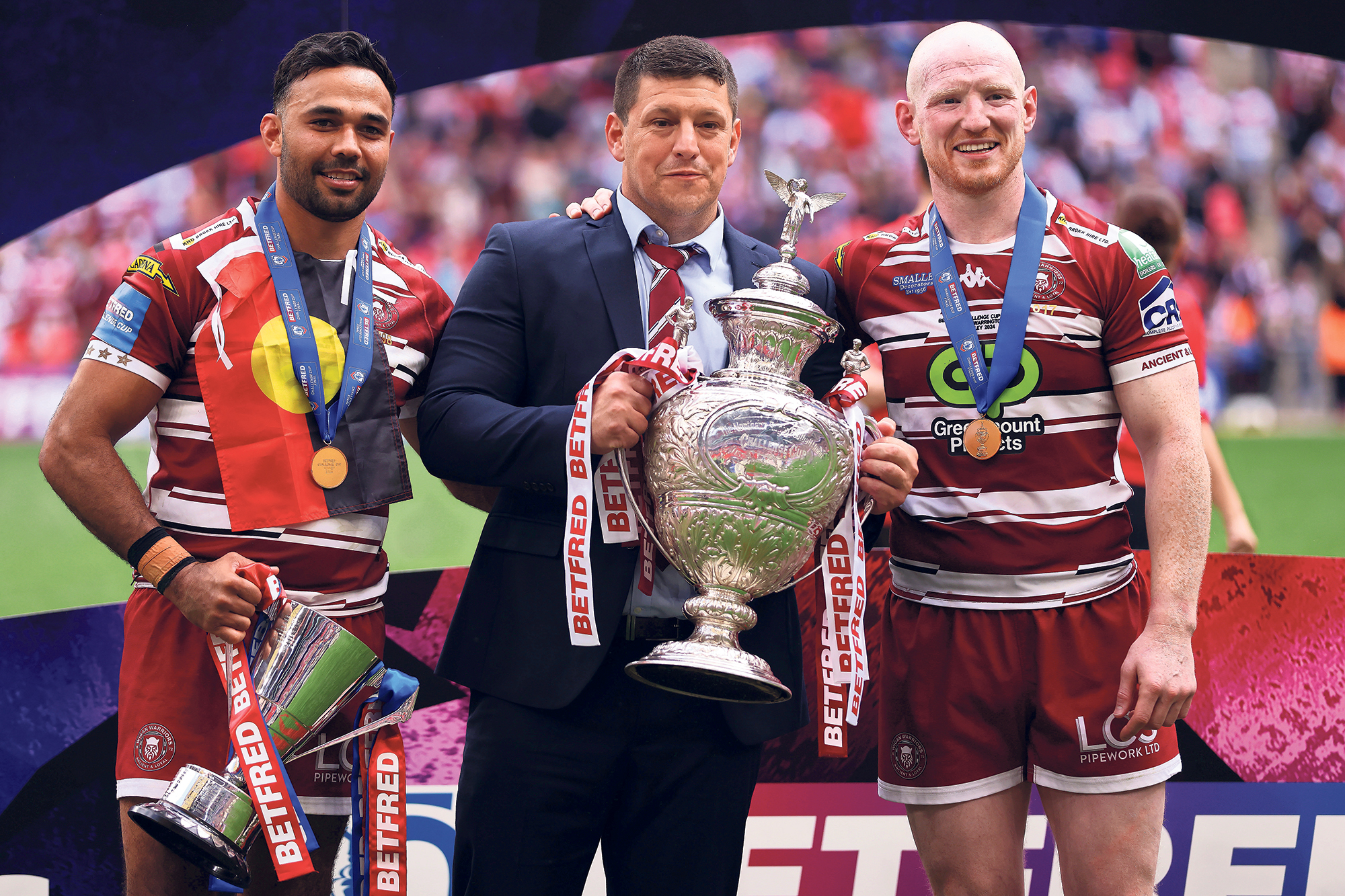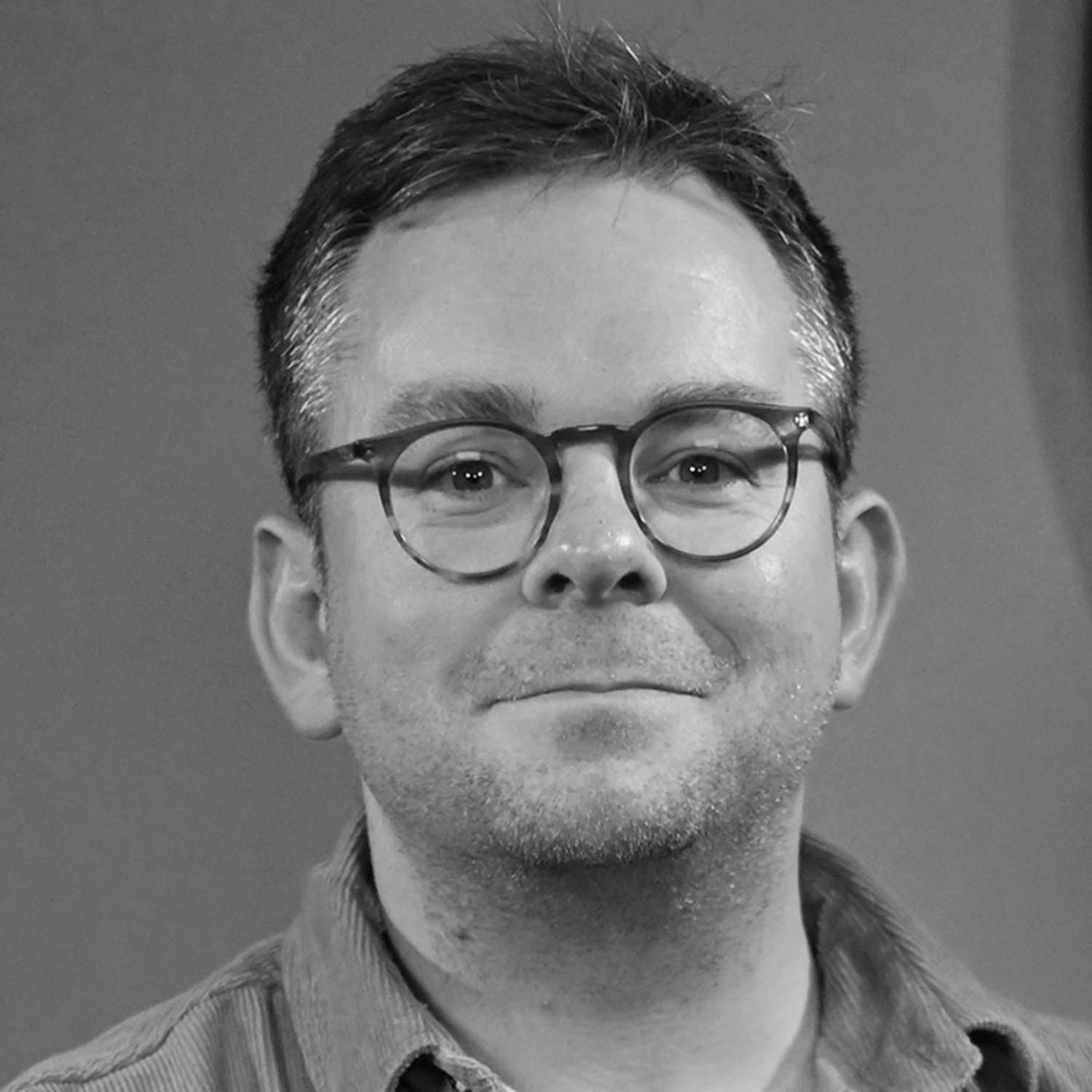Guest visits by coaches from other sports have become a common trend in elite sporting environments. Scan the sidelines at training and you are likely to find an unexpected guest taking in the sessions before sitting in on meetings to swap ideas.
So it is hard to imagine a worse time for Matt Peet, the Wigan Warriors head coach, to have turned up at the New York Giants training facility last year than on the same day it was announced that Saquon Barkley, the Giants’s star running back, was leaving as a free agent to join not just anyone, but the Philadelphia Eagles, the Giants’s nemesis.
That move has worked out well for Barkley, now a Super Bowl champion and on the cover of this year’s Madden, an NFL video game. Less so for the rebuilding Giants.
“We thought we were going to get into some meetings and hit a few closed doors, but they were great with us,” Peet says of his trip to the Meadowlands.
It was far from a wasted journey. Peet spent time with the Giants’s recruitment and analytics departments and returned to Wigan with a valuable new model, completely revamping the language Wigan’s scouts and coaches used to track and grade potential academy prospects.
“You see a player and say: ‘Oh, he’s quick.’ Well, is he quick or is he really quick? Or is he lightning? It was something so simple, going back to the coding of any player that you see. [The Giants] might refer to a player as a ‘blue C2’, and that will mean something in their system. So it was about installing the language, making all of our scouts and coaches understand that. I thought we had a decent handle on it, but when I saw the amount of detail they’re going into, it opened our eyes. That was a big one.”
Top coaches will often stress the importance of developing and evolving, but Peet is on another level, possessing an unquenchable thirst to learn in order to build the best culture for his team. After we finish at a hotel in central London, his next stop is a long meeting with Rassie Erasmus, the double Rugby World Cup-winning head coach of the Springboks.
The aim of those link-ups is not for a quick conversation and a cup of tea but to ask questions, to build long-lasting relationships. A visit during Peet’s first pre-season to Saracens changed how he believed a training facility could be run, noting how the “laptops out around the breakfast table, meetings going on but not in meeting rooms” differed from the intensity he was used to at Wigan.
In a salary-cap age where players could be tempted elsewhere, he wanted to replicate the positive environment he had seen at Saracens where players “want to stay together for a long time”.
Peet has already poached an idea on sporting heroes this season used by Erasmus. His own was Eric Cantona. “Watching Manchester United in 1991 and 1992 chasing success, and [Cantona] being the last piece of the jigsaw. But more the fact that he was a bit different, collar up, played on the edge.”
Newsletters
Choose the newsletters you want to receive
View more
For information about how The Observer protects your data, read our Privacy Policy
However this season culminates for Wigan this coming Saturday in the Grand Final, Peet is on an astonishing trajectory. He ended Wigan’s Super League title drought in 2023 before winning the lot last year: Challenge Cup, Super League, League Leaders’ Shield and the biggest of them all, the World Club Challenge, defeating Penrith Panthers. Not bad for a coach in his first senior role.
Peet, 41, never played professionally, instead coaching from the age of 18, when he helped his teachers at school with the younger age groups.
Those patterns of planning sessions and a pre-season, picking a team and dealing with players who were not selected were all ingrained by the time he was 30 – “I have managed to pack in a hell of a lot of sessions and games and made a lot of mistakes away from the limelight,” as Peet puts it – were combined with studying for a degree in English at Manchester Metropolitan University, further fuelling his appetite to learn.
Pillars of sustained coaching success regularly come up in our conversation: NFL coaches Pete Carroll and Bill Walsh, basketball’s Steve Kerr. A planned meeting with Pep Guardiola is in the works.
“Whenever I’ve read about the elite coaches who win over a long period, the win for ever mentality, if you set your sights on competing and learning, you cannot really lose. Our goal is to be the best learning team, the most connected team,” Peet says.
“I’d rather learn about cultural things and philosophical ideas. The fact is I have four assistant coaches and a team of staff who look after a lot of the attack and defence. I have to have a handle and understanding of all that, but for me it’s about where can we get to culturally? How can I support the lads better? Learning about counselling or listening skills, questioning skills. I find that much more exciting than watching a game of rugby, to be honest.”
From the age of seven, nothing was strange to me in terms of building a relationship with people
From the age of seven, nothing was strange to me in terms of building a relationship with people
Matt Peet, Wigan head coach
Recently, Peet twigged where his drive for open communication comes from. Growing up in Wigan, his parents provided respite and foster care for children with an array of educational and learning and physical needs. They would stay sometimes for only a weekend, sometimes for months.
“Some of them have passed away, some I see now at the games. I’m glad we did it and it’s something I might do with my family. From the age of seven, nothing was strange to me in terms of communicating with people or building a relationship with people.”
Which explains why Peet feels so strongly about openness within Wigan’s group and why he promotes ANDYSMANCLUB, which hosts talking groups for men to open up to one another.
“The language we use around mental health is miles off,” he says, preferring for the discussion to be focused on building mental resilience rather than trying to “fix” people, preparing yourself through good practices.
Following up a perfect year like 2024 on the field does not seem as important when those accolades are secondary to the culture you are trying to build. However many trophies Wigan go on to win during his tenure – Peet is under contract until 2030 – that bond and the environment Wigan are creating will be his true legacy.
Photograph by Paul Harding/Getty Images



